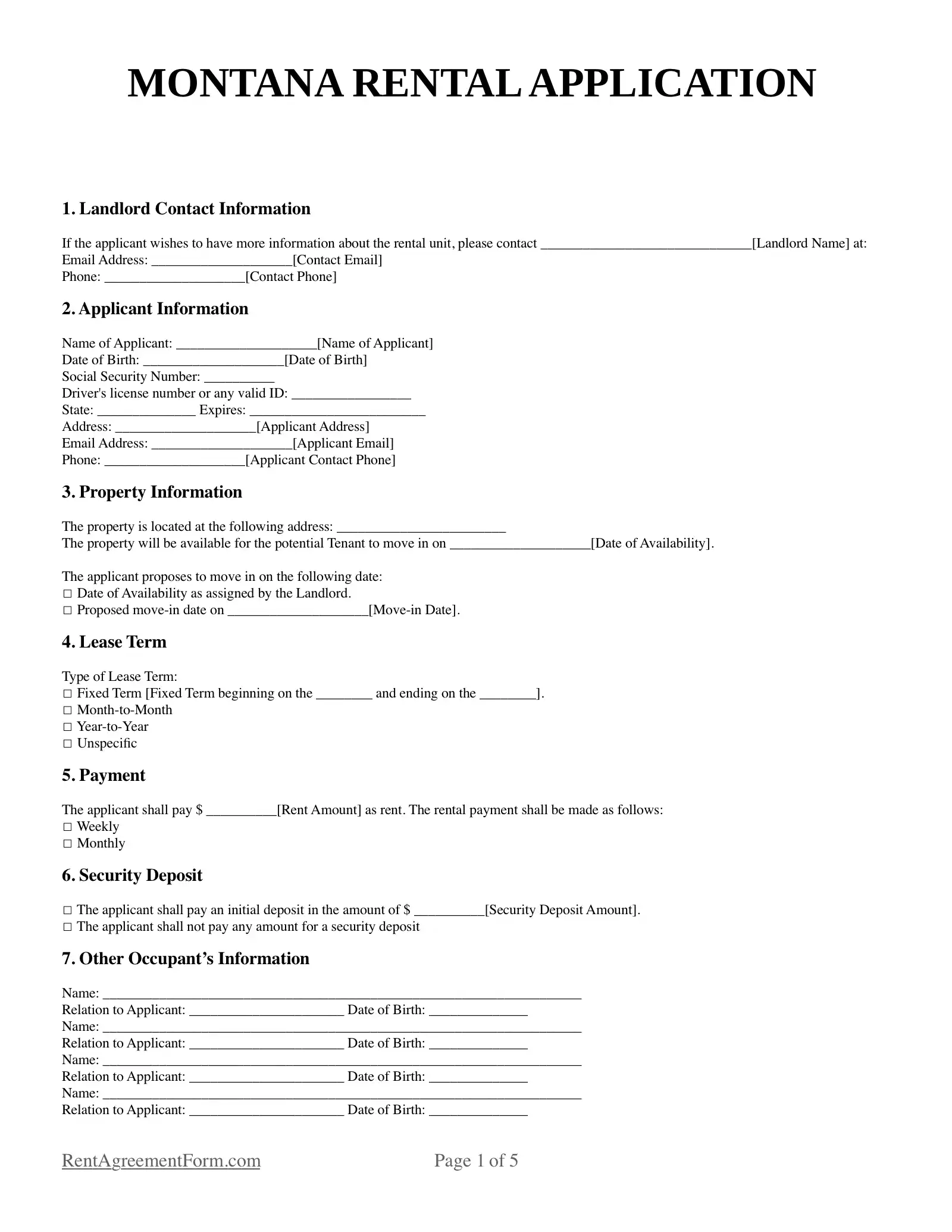Montana Rental Application Form
Are you looking to lease residential property in Montana? When you find one that you like, the first thing you need to do is submit a rental application form. It is a document a prospective tenant submits to the landlord to signify their interest.
Landlords may receive multiple application forms. To ensure that they choose the best tenant among the pool of applicants, they have to do a background check. A Montana landlord will look into each applicant’s credit score and income to determine if they can pay rent every month. Most landlords prefer a credit score of 620 or more.
Moreover, the landlord will do an eviction check on the applicants. A landlord may not look at an applicant favorably if they have a history of being evicted for non-payment of rent or violating lease agreements. Landlords also look at an applicant’s criminal history. They have to gather all the information they can to select the best tenant who isn’t likely to cause any problems.

Rental Application Fee for Montana
There is no law or statute that dictates the amount a Montana landlord can collect as a rental application fee. The fee is necessary to cover the background investigation of an applicant. If the landlord does the check personally, the fee will cover administrative expenses. The fee is also non-refundable because the landlord must pay a third party to do the investigation.
Landlords must collect a uniform application fee. If they ask for varying amounts from interested tenants, they can be accused of impartiality. In the same manner, a landlord cannot reject an application based on certain biases. The Federal Fair Housing Act explicitly states that a landlord cannot deny an application due to an applicant’s color, race, gender, religion, nationality, disability, or familial status.
Montana Security Deposits for Rental Applications
Montana landlords are not limited by statutes when it comes to collecting security deposits. However, unlike rental application fees, the security deposit is refundable. The landlord has 10 days to give the tenant the security deposit back after the end of the tenancy unless there are deductions.
The landlord can deduct costs incurred for repairing and cleaning the property if necessary. If there are deductions from the security deposit, the landlord must give the tenant an itemized list or statement of expenses within 30 days. The statement must be accompanied by the balance from the security deposit (M.C.A. § 70-25-201).